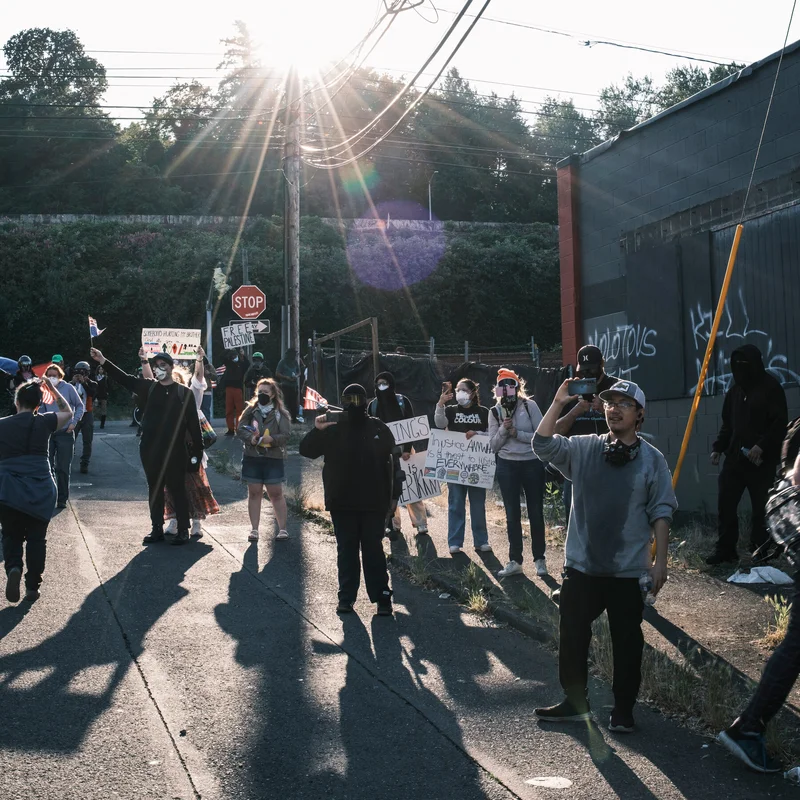President Donald Trump announced on Thursday that he has ordered federal troops to protect Immigration and Customs Enforcement (ICE) facilities in Portland, Oregon, describing the sites as under “siege by domestic terrorists.” The move escalates a long-running standoff between federal authorities and local protesters, reigniting debates over federal overreach, civil liberties, and the definition of domestic terrorism .
Why Portland? A Flashpoint for Federal-Protest Tensions
Portland has been a focal point of anti-government demonstrations since 2020, with frequent protests outside the ICE detention center in downtown Portland. While many demonstrations have been peaceful, some have involved vandalism, fireworks, and attempts to breach fencing—actions the Trump administration now labels as “acts of domestic terrorism.”
“These are not protesters—they are anarchists and terrorists targeting federal property,” Trump said in a social media post. “I’ve ordered immediate deployment of U.S. troops to secure our ICE facilities. No more lawlessness.”
Icon: 🛡️ Key Facts About the Deployment
- Location: ICE facility in downtown Portland, OR
- Force Type: Active-duty U.S. military and DHS tactical units
- Legal Basis: Cited Insurrection Act and “protection of federal property”
- Local Response: Portland Mayor calls move “unnecessary and provocative”
Legal and Constitutional Concerns
The use of active-duty military on U.S. soil is restricted by the Posse Comitatus Act of 1878, which generally prohibits federal troops from enforcing domestic law. However, exceptions exist under the Insurrection Act—invoked by Trump in 2020 during George Floyd protests and now again in 2025.
Legal scholars warn the latest deployment may blur the line between public safety and political theater. “Calling protesters ‘terrorists’ to justify military deployment sets a dangerous precedent,” said Elizabeth Goitein, co-director of the Liberty & National Security Program at the Brennan Center for Justice .
Flowchart: How Federal Troop Deployment Works
1. 🚨 Threat to federal property identified →
2. 📜 President invokes Insurrection Act →
3. 🪖 Defense Secretary deploys troops →
4. ⚖️ Courts may review legality →
5. 🏛️ Congress can terminate via resolution
Public and Political Reaction
Reactions have split sharply along partisan lines:
| Group | Position | Key Quote |
|---|---|---|
| Trump Administration | Supports deployment | “Protecting federal officers from violent mobs” |
| Portland City Council | Opposes deployment | “Federal troops inflame tensions, not calm them” |
| ACLU | Strongly opposes | “Militarizing streets violates First Amendment rights” |
| House GOP Leadership | Supports | “ICE facilities are sovereign federal ground” |
What’s Next?
Oregon’s governor has requested an emergency injunction to block the troop presence, citing lack of state consent. Meanwhile, civil rights groups are monitoring for potential abuses, recalling 2020 incidents where federal agents detained protesters without identification.
For more on federal law enforcement powers, see our [INTERNAL_LINK:federal-law-enforcement-powers] explainer.
For an authoritative overview of the Insurrection Act, refer to the nonpartisan Legal Information Institute at Cornell Law School.
Sources
- https://www.nytimes.com/2025/09/27/us/politics/trump-portland-troops.html
- https://www.brennancenter.org/our-work/research-reports/insurrection-act-explained
- https://www.law.cornell.edu/uscode/text/10/subtitle-A/part-I/chapter-13
- https://www.aclu.org/news/free-speech/trump-administration-deploys-military-against-protesters




